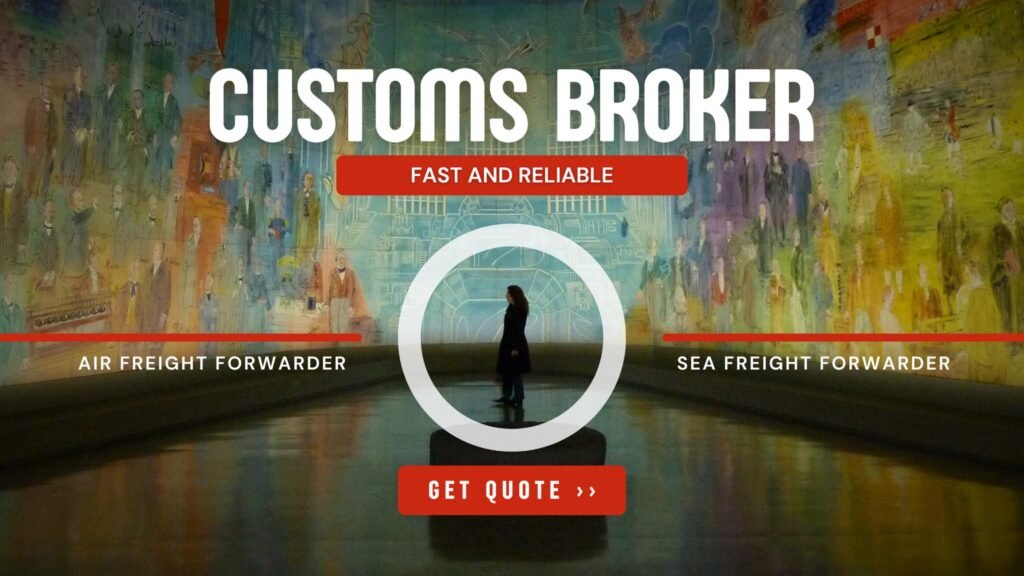Amidst the complexities of international trade regulations, a Customs Broker is instrumental in facilitating seamless transactions and unlocking numerous benefits for businesses operating in the Philippines. In the dynamic landscape of global trade, the Philippines serves as a pivotal hub for importers and exporters, offering immense opportunities for business growth and expansion.
Customs brokerage has a long history, changing with global trade and customs laws. From ancient times to the Middle Ages, middlemen managed trade routes and customs. In the 19th century, as trade grew, formal customs laws appeared, and the first customs brokerage firms started in the US. Nowadays, customs brokers are crucial for handling complex regulations, making sure rules are followed, and keeping trade running smoothly across borders. They adjust to new trade methods and technologies.
What Is Customs Broker?
Subscribe to the MyCCBI365 newsletter
1. Expertise in Philippine Customs Regulations: Navigating the complex Philippine customs rules requires special skills and practical knowledge. Customs brokers have a deep understanding of local laws, tariffs, and import/export rules, ensuring compliance and avoiding costly problems or fines.
2. Efficient Document Management: Handling documents is crucial in global trade, involving various forms and licenses. In the Philippines, customs brokers speed up this process by carefully organizing and submitting all required paperwork for their clients, saving time and resources while maintaining accuracy and thoroughness.
3. Improved Management of Duties and Taxes: When goods are imported, duties, taxes, and other charges can raise business costs. Customs brokers use their knowledge to classify duties, find exemptions or special tariff treatments, and lower duty payments. This helps businesses use their money better and compete better.
4. Streamlined Customs Clearance: Quick customs clearance is vital for smooth supply chain operations and satisfying customers. Customs brokers speed up clearance by working with authorities, solving problems fast, and making sure shipments are released on time. This cuts transit times and improves how operations run.
5. Managing Risk and Ensuring Compliance: Failure to follow customs rules can lead to serious problems like fines or loss of goods. Customs brokers in the Philippines work closely with businesses to manage risks. They find and fix compliance issues early, set up strong controls, and advise on the best ways to reduce risks and protect the business.
6. Understanding Local Markets and Building Networks: Apart from knowing the rules, customs brokers in the Philippines understand how the local market works. They share useful information about trade trends and practices. They also help businesses connect with potential partners, suppliers, or customers, creating chances to network and build partnerships that help the business grow.
In conclusion, hiring a customs broker in the Philippines offers more than just help with rules. They help navigate regulations, improve efficiency, and reduce risks, making international trade easier. Their expertise and services help businesses find new chances, simplify processes, and grow sustainably in the Philippines and worldwide.
General FAQs
A customs broker is a licensed professional or company that helps importers and exporters comply with government regulations regarding the importation or exportation of goods. They act as intermediaries between the business and the customs authorities, ensuring all necessary paperwork is filed, duties are paid, and that shipments are cleared for entry or exit.
Key benefits of hiring a customs broker:
- Expertise in Customs Regulations: Customs brokers are knowledgeable about complex and constantly changing customs regulations, tariffs, and trade laws. They ensure that your shipments comply with all the requirements, reducing the risk of fines, penalties, or delays.
- Efficient Customs Clearance: With a customs broker handling the paperwork and filings, your shipments are more likely to clear customs quickly, ensuring timely delivery of goods.
- Avoiding Errors: They help avoid costly mistakes related to incorrect classifications, missing documentation, or miscalculating duties and taxes, which could delay your shipment or result in fines.
A customs broker can help reduce overall costs in several ways:
- Accurate Classification of Goods: Properly classifying goods under the correct tariff code can prevent overpaying on duties and taxes. Customs brokers are skilled in tariff codes and can identify the most favorable classification for your goods, potentially reducing duties.
- Duty Drawbacks and Exemptions: Brokers can help you apply for duty refunds (drawbacks) or exemptions where applicable. They know how to take advantage of various programs, such as free trade agreements (FTAs), that could reduce or eliminate duties on certain imports.
- Minimizing Fines and Penalties: By ensuring that all customs declarations are accurate and timely, brokers can help you avoid fines or penalties for non-compliance with import/export laws.
- Optimizing Supply Chain: Customs brokers can provide advice on how to structure shipments to take advantage of tax savings, such as by using the most cost-effective route, minimizing storage costs, or consolidating shipments.
A customs broker helps mitigate several challenges in international trade, including:
- Regulatory Compliance: Navigating the complex landscape of customs regulations and trade laws can be difficult, especially when dealing with multiple countries. Customs brokers are well-versed in both local and international trade regulations, ensuring compliance with customs laws, import/export restrictions, and tariffs.
- Documentation and Paperwork: Import/export paperwork can be voluminous and complex. A customs broker manages all required documentation, such as invoices, bills of lading, certificates of origin, and import/export declarations, ensuring that they are completed correctly and submitted on time.
- Customs Inspections and Delays: Customs brokers assist in handling any issues that arise during customs inspections, including delays, misclassifications, or discrepancies. Their expertise ensures that any issues are resolved promptly, preventing shipments from being held up at the border.
- Dealing with Customs Authorities: In case of disputes or clarifications required by customs, brokers act as your representative in communication with the authorities, helping to resolve issues quickly and avoiding unnecessary delays.
Customs brokers must stay up-to-date with the ever-changing landscape of customs regulations, trade laws, tariffs, and international agreements. They achieve this by:
- Continuous Education: Customs brokers are required to undergo regular training and maintain certifications to stay informed about changes in the law, new trade agreements, and updated customs requirements.
- Monitoring Trade Policy Changes: They keep track of updates in national and international trade policies, including changes in tariffs, sanctions, import/export restrictions, and trade agreements (such as free trade agreements or regional trade pacts).
- Proactive Compliance: By staying current with these changes, brokers ensure that your business complies with new laws and regulations, reducing the likelihood of penalties or delays. They can also help you take advantage of new opportunities, such as duty reductions or exemptions introduced by governments or trade agreements.
This continuous monitoring and adjustment to new regulations allow you to stay compliant, avoid disruptions, and remain competitive in global markets.
A customs broker plays a vital role in optimizing your supply chain and improving logistics efficiency by:
- Ensuring Timely Delivery: By managing the complexities of customs clearance, brokers help reduce delays at borders or ports, ensuring that goods reach their destination on time. This is crucial for businesses that rely on tight inventory management or just-in-time (JIT) systems.
- Streamlining Shipping Processes: Customs brokers can advise on the most efficient way to ship goods by understanding regulations related to shipping routes, containerization, and cargo consolidation. Their expertise ensures that shipments are properly coordinated to minimize lead times and reduce transportation costs.
- Managing Compliance Risk: By reducing the risk of non-compliance (through proper classification, accurate declarations, and timely submissions), brokers help prevent disruptions in the supply chain caused by customs-related issues.
- Navigating Trade Agreements: Customs brokers can advise on utilizing free trade agreements (FTAs) or preferential tariff programs that help lower customs duties, improving your cost-effectiveness and competitiveness.
Overall, customs brokers enhance operational efficiency, reduce the complexity of cross-border transactions, and ensure that your logistics and supply chain processes run smoothly.









